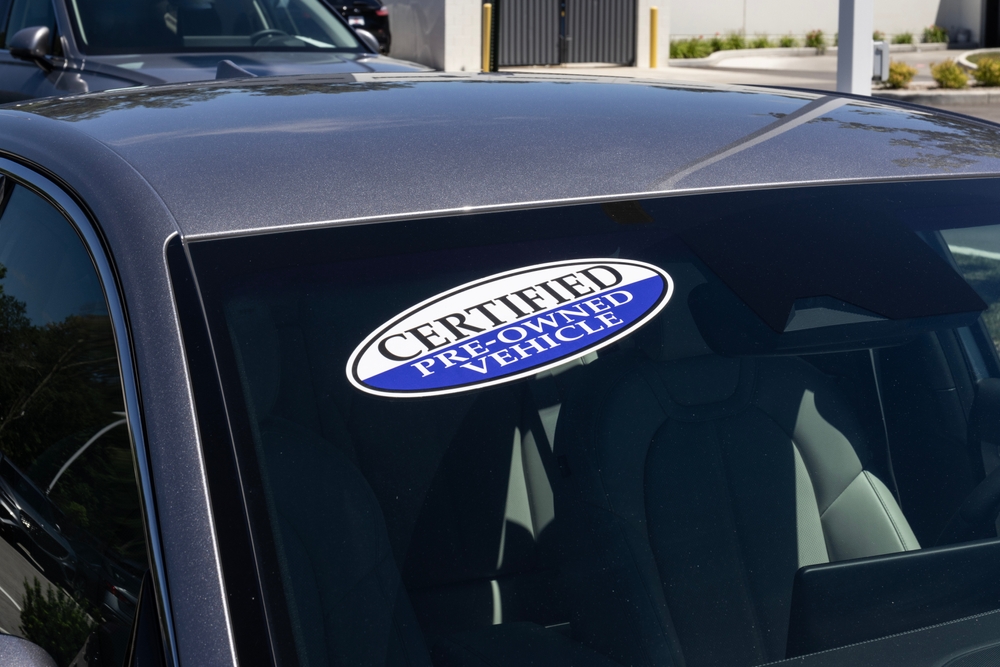The Ultimate Guide to Certified Pre-Owned Cars: 10 Key Things You Need to Know
Introduction
When buying a car, navigating the sea of options can feel overwhelming. From new to used vehicles, each choice has its own pros and cons. One option often overlooked is the certified pre-owned (CPO) car, a middle ground that combines the affordability of used cars with the reliability of new ones. In this blog, we’ll dive deep into everything you need to know about certified pre-owned cars, helping you decide if they’re the right choice for your next vehicle purchase.
1. What Does "Certified Pre-Owned" Mean?
A certified pre-owned car is a used vehicle that has undergone an extensive inspection and refurbishment process to meet the standards set by its manufacturer or dealership. Unlike typical used cars, CPO vehicles are often reconditioned to like-new condition and come with perks like extended warranties, ensuring quality and reliability.
Think of CPO cars as the gold standard in the used car market—they’ve been carefully vetted, repaired, and certified to offer peace of mind to buyers.
2. How Do Certified Pre-Owned Cars Differ from Regular Used Cars?
Certified pre-owned cars stand out in several significant ways:
- Thorough Inspection: CPO vehicles undergo a detailed multi-point inspection, often covering over 100 components, including the engine, transmission, brakes, and more.
- Warranty Coverage: Unlike regular used cars, CPO vehicles often come with manufacturer-backed warranties, adding an extra layer of protection.
- Reconditioning: Many CPO cars are reconditioned, including repairs, paint touch-ups, and interior cleaning, to ensure they meet the highest standards.
- Limited Age and Mileage: Most manufacturers restrict CPO vehicles to cars that are under a certain age (usually less than six years old) and have lower mileage (typically under 75,000 miles).
3. How Much Does a Certified Pre-Owned Car Cost?
CPO cars tend to be more expensive than regular used cars because of the added inspection, reconditioning, and warranty coverage. On average, the price difference can range from $1,000 to $3,000, depending on the make, model, and certification program.
However, this higher upfront cost often pays off in long-term savings. With fewer repairs, a warranty, and higher resale value, CPO cars can offer significant value for your investment.

4. Can You Negotiate the Price of a Certified Pre-Owned Car?
Yes! While CPO cars are priced higher due to their added benefits, there’s usually room for negotiation. Factors like the car’s age, mileage, market demand, and dealership policies can influence pricing flexibility.
Pro Tip: Do your research on the car’s market value using resources like Kelley Blue Book or Edmunds to ensure you have a strong bargaining position.
5. What Are the Benefits of Buying a Certified Pre-Owned Car?
There are many reasons why CPO cars are a popular choice among savvy buyers:
- Affordability: CPO cars cost less than new cars while still offering many of the same benefits.
- Reliability: The inspection and reconditioning process ensures you’re getting a vehicle in excellent condition.
- Warranty: Manufacturer-backed warranties give you coverage similar to new cars, including roadside assistance and extended powertrain warranties.
- Peace of Mind: With thorough vetting and a clean title guarantee, CPO cars eliminate much of the uncertainty associated with buying used vehicles.
6. How to Choose the Right Certified Pre-Owned Car
Choosing the perfect CPO car requires careful consideration. Follow these steps to make the right decision:
Research Certification Programs: Not all CPO programs are created equal. Look into the specific benefits offered by the manufacturer’s program, such as warranty length and inspection details.
- Set a Budget: Determine how much you’re willing to spend, factoring in potential financing or trade-in options.
- Consider Your Needs: Think about your lifestyle and requirements, such as size, fuel efficiency, or tech features.
- Check the Vehicle History Report: Use services like Carfax or AutoCheck to verify the car’s history, including previous accidents or major repairs.
- Take a Test Drive: Always test drive the car to assess its performance and comfort.
7. Where Can You Find Certified Pre-Owned Cars?
CPO cars are available through authorized dealerships affiliated with the car’s manufacturer. Some manufacturers also have online platforms dedicated to showcasing their certified inventory.
Popular Manufacturer CPO Programs:
- Toyota Certified Used Vehicles
- Honda Certified Pre-Owned
- Ford Blue Advantage
- BMW Certified Pre-Owned
These programs often have robust standards, ensuring that you’re buying from a reputable source.
8. What to Look for During a Test Drive of a CPO Car
A test drive is your chance to evaluate the car’s condition and performance. Here’s what to pay attention to:
- Smooth Operation: Check for smooth acceleration, braking, and steering.
- Noises or Vibrations: Listen for unusual sounds from the engine, suspension, or brakes.
- Functionality: Test features like the air conditioning, entertainment system, and lights.
- Comfort: Ensure the seating, legroom, and overall comfort meet your expectations.
Take your time during the test drive, and don’t hesitate to ask questions if something feels off.
9. How to Verify the Authenticity of a Certified Pre-Owned Car
To confirm a car’s certification:
- Review Documentation: Ask for the inspection checklist and certification paperwork.
- Check the Warranty: Verify the warranty terms with the manufacturer to ensure it’s legitimate.
- Request Maintenance Records: A well-documented maintenance history adds credibility to the car’s condition.
- Consider a Third-Party Inspection: For extra peace of mind, hire an independent mechanic to inspect the vehicle.
10. Potential Drawbacks of Buying a Certified Pre-Owned Car
While CPO cars offer many benefits, there are a few drawbacks to consider:
- Higher Cost: The added benefits make CPO cars more expensive than regular used cars.
- Limited Selection: CPO cars are limited to certain makes, models, and age ranges.
- Potentially Higher Insurance Premiums: Insuring a CPO car might cost more due to its higher value.
Despite these drawbacks, many buyers find the added peace of mind and reliability well worth the investment.
Conclusion
Certified pre-owned cars strike an excellent balance between cost, quality, and reliability. With rigorous inspections, warranty coverage, and reconditioning, they offer a compelling alternative to new and regular used cars. By understanding the key aspects of CPO vehicles, you can confidently navigate the car-buying process and find the right vehicle for your needs.
Whether you’re looking for a luxury ride or a family-friendly SUV, consider exploring the world of certified pre-owned cars—they just might be the perfect fit for your budget and lifestyle.



